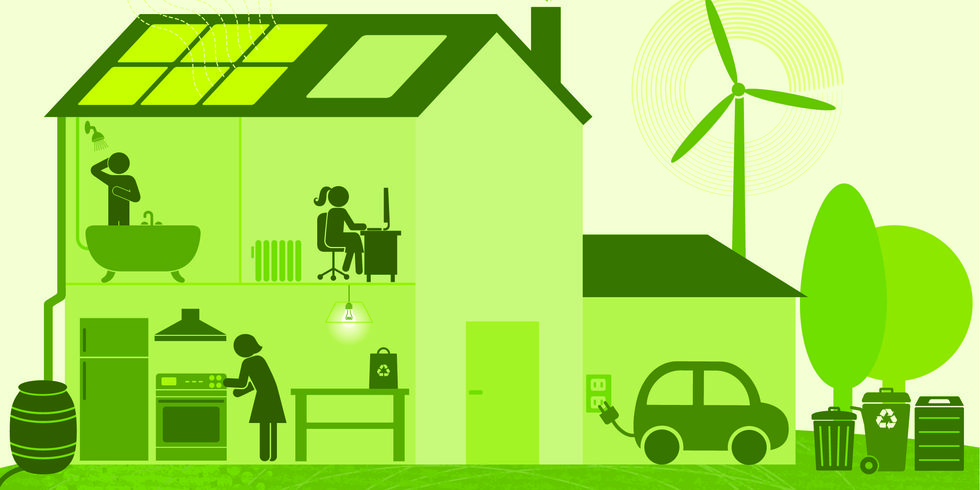
ECO4 is the fourth phase of The Energy Company Obligation (ECO) – a government-funded scheme that makes UK homes more energy efficient and tackles fuel poverty.
Since 2013, over 3.1 million home improvements have been made under the scheme, but this final phase aims to go even further.
What is the ECO4 grant?

ECO4 is the fourth stage of the government’s Energy Company Obligation (ECO) scheme. As part of its Sustainable Warmth Strategy, the government has extended the ECO grant for an extra four years, meaning it will run until March 2026.
The primary goal of this grant is to support low-income households who are unable to upgrade their homes and heating systems.
By doing this, the government will be able to help vulnerable people power their homes, whilst also helping the country reach its net zero by 2050 goal.
Nottingham Eco 4 Government Funds
What does ECO4 cover?
Depending on which energy supplier you go for, you could get a range of different home improvements.
To give you an idea of the type of support you can get with the ECO4 grant, take a look at the key areas of interest below.
Nottingham home efficiency
Insulating homes

The ECO4 scheme takes a fabric-first approach, which means it focuses on improving the building itself before installing new heating systems.
In fact, any home with an efficiency rating of ‘D’ or below will have to install loft, roof, and exterior-facing cavity wall insulation before improving any existing heating systems.
The government’s ECO4 report shows a specific interest in insulating solid walls – aiming to carry out 22,000 solid wall insulation installments each year.
Repairing boilers
We’re all familiar with the phrase ‘waste not, want not’, right? Well, the saying also applies to our household appliances.
The government claims that “to date, we have seen no boiler or electric storage heater repairs” through the scheme. Instead of repairing efficient gas boilers, people are replacing them after around three to eight years – far before the end of their expected lifetime of 12 years.
This is why ECO4 will incentivise repairing efficient heating systems where possible. Any broken heating systems that cannot be repaired can be replaced through the Broken Heating Cap – which brings us to our next point.
Installing greener heating systems

ECO4 focuses on replacing old, worn-out boilers with greener alternatives.
To make sure the country hits its net zero by 2050 goal, the ECO3 scheme excluded coal-fuelled heating systems. ECO4 will be continuing this rule, whilst also adding oil- and LPG-fuelled heating systems to the exclusion list.
Instead, the government will encourage people to replace their boilers with greener alternatives, namely heat pumps and biomass boilers. ECO4 will also continue to install solar photovoltaics (PV) in all electrically heated homes – but only if a biomass machine or District Heat Network has been ruled out.
Who is eligible for ECO4?
The government’s ECO4 scheme aims to support the least energy-efficient homes in the country, with a focus on low-income and vulnerable households.
One of the main ways companies must measure who’s eligible for the ECO4 scheme is to see if the applicant receives any of the following benefits:
Income-based Jobseekers Allowance (JSA)
Income-related Employment & Support Allowance (ESA)
Income Support (IS)
Pension Credit Guarantee
Credit Working Tax Credit (WTC)
Child Tax Credits (CTC)
Universal Credit (UC)
Housing Benefit
Pension Credit Savings CreditThe government will also make sure that anyone with additional Department of Work and Pension (DWP) benefits has access to ECO4, regardless of whether they receive Universal Credit.
ENvYUSwRAEwYCii
While the focus will be primarily on owner-occupied homes, this new phase of the grant will also support inefficient social housing and private rented housing (if the landlord permits it).
How to apply for ECO4
Think you’d benefit from ECO4? All you need to do is get in touch with one of the energy suppliers that are offering it.

You’ll then be taken through a telephone assessment, which will include answering questions about various things, including your income, whether you receive certain benefits, and your property’s energy efficiency rating.
The installer will then arrange a date to visit your home and confirm whether it’s suitable for the grant.

